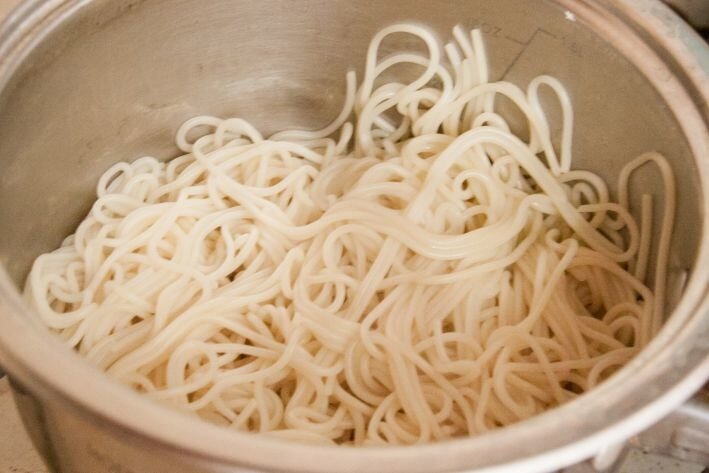It would seem that there is nothing complicated about cooking pasta. You need to pour water, add salt, wait for it to boil, throw in the pasta and take it out after a certain amount of time.
But many people often overcook pasta or simply don't keep track of time. So it's worth remembering a few types of pasta that definitely shouldn't be overcooked.
Thin noodles and spaghetti
Thin types of pasta, such as noodles and spaghetti, are particularly prone to overcooking.

Their small diameter allows them to heat up and cook faster than larger pasta. Excessive cooking time can result in loss of the desired texture and unpleasant stickiness.
Tagliatelle
Tagliatelle is another type of Italian pasta that does not tolerate long cooking.
These wide ribbon noodles are delicate and tender. They cook quickly and need to remain firm to retain their shape and flavor.
Penne's sailboats
Penne, with its unique tubular shape, also prefers short cooking times.
The shape helps maintain an al dente texture even after cooking, making it ideal for thicker sauces that may pool inside the tubes.
Things to remember
When starting to cook pasta, everyone just needs to look at the cooking instructions. The manufacturer indicates it on the packaging for a reason. Overcooking other types of pasta will also lose their structure and taste.
Earlier we talked about which kefir is better .
